
European University of Tirana
European University of Tirana is a leading university and research centre in Albania, established in full compliance with the criteria of the Bologna Charter, including study programmes in the three levels of study: BA; MA and Doctorates. UET engages in high quality teaching and research as well as exchange programmes and capacity building projects with local and international partners in the following major disciplines: economy, finance, business, law, social sciences, political sciences, and communication and information technology. UET is already participating in projects funded by the European Commission, such as: Life Long Learning Programme – Jean Monnet Chair (for the first time in Albania) LLP – Tempus Project (3 Tempus project) Erasmus Mundus; European Programme for Science and Technology (COST); Erasmus + KA1 Credit Mobility (six projects); Erasmus+ KA2/Capacity Building for Higher Education Institutions (two projects).
UET is particularly interested in the link between study programmes, research and labour market as well as the community. As such, UET has established the Labour Market Boards per each Department which are composed of highly qualified professionals from the governmental sector, private enterprises and businesses; CSOs, HEIs etc. The purpose of the board is to provide feedback and insights in regards to the needs/demands of the labour market so as UET can link education, research and study programmes with the labour market and needs of the society. In addition, they serve as a network for job opportunities for students. In addition, the UET Alumni Association and the Student Services work towards the link between education and the job market.
UET is particularly interested in the internationalisation of its study programmes and thus it seeks to build successful partnership with other institutions in the region, in Europe and now also in the USA. UET has established the network Next Europe, which brings together leading universities in the Western Balkans and research centres in Europe (LSEE, UCL SSEES, EUI, CEU, Sciences Po etc.) with research expertise and interest in Albania and South East Europe.
UET has a pool of highly qualified researchers, lecturers and project managers and it works closely with a well-established network of higher education institutions, businesses, research institutes and other stakeholders. UET pays particular importance to its strategic communication, visibility of actions, dissemination of information, knowledge-sharing and exchange of experiences and know-how.

Die Berater
“Die Berater” Unternehmensberatungs GmbH (www.dieberater.com) focuses on adult education vocational training and human resources development. Founded in 1998 by Martin Röhsner, die Berater® now employs 350 people in over 40 locations throughout Austria, with additional centres in Slovakia, Slovenia, and Bulgaria.
Further education and training is the core business within our broad portfolio. Planning, organising and running staff-development and education programmes for more than 18,000 participants each year, die Berater figures amongst the largest private educational institutes in Austria and was awarded with the state award for adult education (Österreichischer Staatspreis für Erwachsenenbildung). Our services are aimed at private individuals, national and international companies and organisations in all sectors and of any size, as well as the public sector. Their main aims are to motivate and qualify customers to make full use of their potentials in the economy, at the labour market and in their personal lives.
More than 18,000 people participate in die Berater’s programmes per year – many of them in job orientation and vocational qualification programmes delivered on behalf of the Austrian employment service.
die Berater’s main fields of activities are:
- Adult education and vocational training
- Consultancy
- Coaching and counselling
- Outplacement
- New media
- EU projects
- Corporate Social Responsibility (CSR)
Contents and methodologies of our training offers are tailor-made according to the needs of our customers. Contents and methodologies include online seminars. die Berater’s New Media department develops educational architectures, provides tailor-made e-learning and mobile learning solutions, and produces state of the art e-learning content.
At the core of die Berater’s seminars, workshops, and coaching and consulting sessions is the principle of appreciation and the acknowledgement of existent knowledge and experience of the individual person.
In die Berater’s corporate culture fair play, respect tolerance and social responsibility are central values.
die Berater is certified – apart from several Austrian quality assurance systems for education and training – according to IS0 9001:2000.
In the past years die Berater has been involved in more than 90 EU-funded projects in different roles – as project coordinator, partner and evaluator. Through these projects a sustainable European partner network of more than 500 organisations has evolved.
Not only does die Berater participate in European projects, but members of staff have also authored several publications which were recommended by the European Commission to project applicants and coordinators. These publications deal with the competencies needed for successful cooperation in European projects and networks.
In particular “Survival Kit for Lifelong Learning Projects” is widely known as a standard project management handbook for Multilateral Projects in the Lifelong Learning Programme. (www.europeanprojectmanagement.eu) The guidance given by the “Survival Kit” is of course put into practice in all European projects of die Berater.
Coordinated by die Berater, PACE-Project Actors Community in Europe (www.projectactors.eu) is a Community of Practice for European project actors with the aim of supporting each other by collecting, sharing, updating, further improving and disseminating existing tools for transnational project management.

Blended learning institutions’ cooperative
In 2005 blinc, the blended learning institutions’ cooperative was founded in Goettingen, Germany as a start-up network from based on former EU-funded LIFE and eLearning projects in the health, social and environmental sector.
In 2016 it is consisting of more than 30 organisations and individuals from 23 European countries.
blinc is a European network for educationalists and researchers and offers services and infrastructure to its members; especially in the fields fo VINFL and Competence Oriented Learning; promoting the exchange of know-how and experiences and the evaluation, dissemination, marketing and distribution of their services and products (Valorisation and Networking).
Experts from all educational sectors are members of the cooperative and have been working in the following project sectors:
- Development of training concepts, courses and dissemination materials
- Networking
- Organisational Development
- Evaluation of information and training offers
Since 2005 the blinc eG has been collaborating as partner organisation in 17 European funded projects. It has also carried out evaluations in 6 LLP projects.
Since December 2007 blinc eG has been appointed by its members to foster the valorisation of the LEVEL5 approach to validate informal learning.
Starting in 2012 we have been constantly customising and contextualising our approach and the related instruments in various informal learning areas; in Mobility Actions, Volunteering, Intercultural and Entrepreneurial learning programmes, European Project works and various learning on the job settings. We have been piloting LEVEL5 in different sectors in continuing professional developments, for instance in the service sector, in HR development, CSR or in CPD projects for educational professionals.
Since 2007 blinc has organised five REVEAL conferences with more than 400 participants on innovative approaches on competence oriented learning and validation.

University of Duisburg Essen
UDE is one of the youngest universities in Germany and have a fresh way of looking at things. We think in terms of unlimited possibilities instead of possible limitations. Located in the heart of the Ruhr metropolis, we have 11 faculties working to develop ideas with a future. We are strong on research and teaching, embrace diversity, promote academic potential and fight for genuine educational equality.
Our main research areas are Nanosciences, Biomedical Sciences, Urban Systems and Transformation of Contemporary Societies.
Strategic Alliance: University Alliance Ruhr (UA Ruhr) consisting of the universities of Bochum, Dortmund, Duisburg-Essen, www.uaruhr.de; Office in New York, www.uaruhr.org; Office in Moscow,www.uaruhr.ru; Office in Rio de Janeiro, www.conruhr.net.br;
Joint Research Center: KWI Institute for Advanced Study in the Humanities Essen, www.kwi-nrw.de; International Research Universities Network IRUN, www.uni-due.de/irun.
Personnel: Number of employees 4,729, Percentage of women 44 %, Professors 463,
thereof in the Faculty of Medicine 75, Percentage of women 23 %, Percentage of women (Medicine) 23 %, Academic staff 2,857, thereof in the Faculty of Medicine 1,075, Percentage of women 42 %, Percentage of women (Medicine) 49 %, Non-academic staff (excl. Medicine) 1,409, Percentage of women 55 %
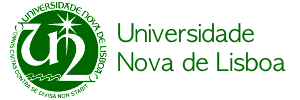
Universidade Nova de Lisboa
The University NOVA from Lisbon (UNL) was founded in 1973. UNL is a university institution with internationally recognized research and quality teaching, progressively oriented towards second and third cycle programs. UNL has nine academic units and two main campuses, one in Campolide (Lisbon) and another in Caparica (Almada), where the Faculty of Sciences and Technology is located. The university enrols over 16,600 students.
The contribution of UNL to this project will be made mainly by means of NOVA Information Management School (NOVA IMS), which is the information management school from UNL. NOVA IMS has a reputation for excellence in various levels of education and in research. It creates managers trained to lead and guide the compilation, analysis, exploration and use of information to improve the decision-making process in organizations. NOVA IMS is a member of the prestigious Association of Schools in the Area of Information Science (iSchools), and also holds a quality certification ISO 9001: 2008. Four of NOVA IMS´s Masters were classified by Eduniversal, international agency that publishes the annual ranking of the world’s Masters and MBA in Top 4 World Ranking of Best Masters 2014-2015 and the best of Portugal in their categories.
NOVA IMS has managed to achieve significant levels of internationalization, not only regarding to education (with a major demand from foreign students and with the participation of internationally renowned teachers in their teaching staff), but also in research and development activities that are largely supported by international partnerships.

The Ss. Cyril and Methodius University
The Ss. Cyril and Methodius University in Skopje is the first state University in the Republic of Macedonia, founded in 1949, initially with three faculties. At the moment, the University represents a functional community of 23 faculties, 5 research institutes, 4 public scientific institutions – associate members, 1 associate member – other higher education institution and 7 associate members – other organizations.
The Ss. Cyril and Methodius University develops study programmes in all scientific fields – natural sciences and mathematics, technical and technological sciences, medical sciences and health, biotechnical sciences, social sciences, humanities and arts. Except for the faculties, the research work is carried out by the independent research institutes as an integral part of the University.
Nowadays, the illustration of UKIM through figures is as follows: over 60.000 enrolled students from Republic of Macedonia in the first and second cycle of studies, as well as over 700 foreign students. The third cycle – doctoral studies is realized within the School of Doctoral Studies, with a total of 655 students. Over 3.100 teaching, research, associate, as well as administrative staff participate in the realization of the teaching and scientific process at the faculties and institutes.
The University has produced around 150.000 graduated high-professional staff (with obtained Bachelor degree); 10.000 candidates obtained Master’s and Specialist’s degree and around 4.000 candidates obtained the doctoral degree in all teaching and scientific fields. The overall activities of the University also include sport, artistic, informative, recreational and other activities organized within many associations, clubs etc.
The University and it’s units have taken part in large number of international projects, including EU funded FP7, Horizon 2020, Tempus, Erasmus, Erasmus+ and other projects. The University has taken part in the Erasmus Mundus networks: Basileus, JoinEUSEE, Eraweb and Euroweb.

Mother Teresa University
Mother Teresa University in Skopje founded in 2015 was established with the mission of creating academic opportunities for students where they can develop as individuals and as professionals. In an ever-globalizing world, education remains one of the main tools available to us to encounter the changes that these processes bring and to influence them. It is difficult to foresee what lies ahead for the future generations, but it is our belief that by combining the competence for critical and analytical thought and by nurturing in our students their entrepreneurial spirit, we can help them in creating the necessary conditions for facing their future.
To fulfill its mission, the Mother Teresa University in Skopje offers education in the natural and the social sciences through its five (5) faculties:
- Faculty of Social Sciences
- Faculty of Informatics
- Faculty of Technological Sciences
- Faculty of Technical Sciences
- Faculty of Civil Engineering and Architecture
At the University we are mindful of our surrounding environment and context, and recognize the need for innovative leadership in all areas affecting human needs, from politics to technology. It is our mission that our students will be able to become leaders in their field of interest and discover new ways and paradigms to improve their environment and society. Mother Teresa University aims to be an institution of higher learning that always seeks to adapt education to the times and context in which we live, reforming for the benefit of our current and future students and society at large.
Mother Teresa University, recently, has been awarded the Erasmus Charter for Higher Education for the Erasmus+ programme 2014-2020, in order to supports a variety of mobility opportunities for learners and staff in education, training and youth institutions and organizations.
With the aim of accomplishing our goals in the most efficient way, our University is opened for innovative ideas and cooperation opportunities with established institutions of higher education, governmental and non- governmental agencies, academics, as well as other interested groups in order to fulfill our common goals.
Founded by the Law for the foundation of Mother Teresa University in Skopje. (“Official Gazette of the Republic of Macedonia” no. 226 dated December 25, 2015), adapted by the Parliament of the Republic of Macedonia on December 24, 2015.
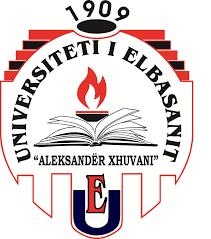
University of Elbasan
The University of Elbasan “Aleksander Xhuvani” was founded in 1991 following the tradition of Pedagogical Institution of Elbasan (founded in 1971). The university was streamlined into the main European academic currents and innovation channels, being the first which adopted the Bologna principles in its activity. Its quality management and overall setup makes it to be considered the second best university in Albania, following the University of Tirana. The university has approximately 14.000 students and most of them eager to get expertise and knowledge from EU professors and specialists.
The University of Elbasan (UNIEL) in Albania has 5 Faculties (Faculty of Natural Sciences, Faculty of Human Sciences, Faculty of Economics, Faculty of Educational Sciences and Faculty of Nursery), 24 Departments and 6 Scientific Centres employing 237 academic staff and having presently about 13 800 students. The University has adopted ECTS in all the fields.
- The Faculty of Natural Science – is one the oldest faculties of the University composed by 5 departments: Department of Mathematics, Physics, Chemistry, Biology and Informatics. It offers 6 BA study programs and 4 study programs of the 2nd
- The Faculty of Human Science is composed by 5 departments: Department of Literature, English and German Languages, History, Geography and Italian and French Languages. It offers 12 study programs of the 1st cycle, 8 study programs in the 2nd cycle and 2 study programs in the 3rd
- The Faculty of Economics was established in 1995 and offers 8 Bachelor study programmes for full-time students, 3 Bachelor study programmes for part-time students and 11 Master study programs, having in total more than 4 000 students. It has 46 full-time and over 50 part-time academic staff. Also, since it always considered international cooperation as a priority it has established connections with different European universities.
- The Faculty of Educational Science is composed by 5 departments: Department of Methodology of Teaching, Civic Education, Psychology, Social Science and Physic Education and Sports. It offers 12 1st cycle study programs and 31 study programs of the 2nd
The Faculty of Medical and Technical Science – it has two departments and one Scientific Centre and offers 6 study programs of the 1st cycle and 5 study programs of the 2nd cycle.
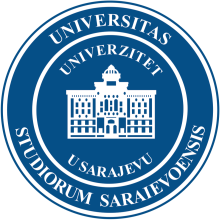
University of Sarajevo
Trying to become an equal partner to universities of superb standing in Europe and beyond, as well as to scientific and research organisations, in compliance with European principles of creating a single higher education area, the University of Sarajevo affords considerable attention to different forms of international cooperation. Internationalisation is the chosen avenue of the University in relation to all segments of teaching and research: education and knowledge transfer, scientific research, artistic production, acquisition and recognition of competences, building academic solidarity, etc. The University of Sarajevo remains determined to continue to be the leader in higher education in Bosnia and Herzegovina in terms of quality of its teaching and research, the number of students and faculty members. In order to uphold this determination, more investment is required for its physical capacities, personnel and research equipment, as well as academic mobility. The University of Sarajevo enjoys partnerships with more than 130 universities in Europe, the USA, Canada, and the Middle East. University of Sarajevo is an equal partner in mobility programs for students and members of staff, and it is open for study and research activities: TEMPUS (103 TEMPUS projects in cooperation with 135 European universities – 83 as partner, 16 as academic coordinator and 4 as grant-holder), FP7 (with 38 FP7 projects, participating since 1980, becoming associated state as of 2009, and first FP project coordinator from B&H), Erasmus Mundus (19 ERASMUS MUNDUS projects in cooperation with 55 EU universities with 179 EU incoming and 263 UNSA outgoing), Erasmus+ , CEEPUS, Mevlana, Fulbright, DAAD, and others. This public institution offers study and research opportunities at 22 Faculties, 3 Academies, 5 Centers, 5 Institutes, with National and University Library, Gazi Husrevbey Library, National Museum of Bosnia and Herzegovina, Student Parliament, with over 100 study programmes and over 200 departments. Today, having around 34,000 enrolled students, it ranks among the largest universities in the region.
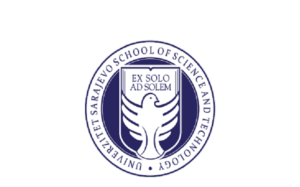
University Sarajevo School of Science and Technology (SSST)
The University Sarajevo School of Science and Technology (SSST) was established in 2004 as the first private university in Bosnia and Herzegovina where teaching and exams are conducted in English. Initially, it started as a university focused on IT, computer and engineering sciences, but has since expanded to include departments of Film Academy, Political Science and International Relations, Economics and Medicine. Dedicated to providing a quality education, as well as international competitiveness and recognition, SSST established collaboration with the University of Buckingham (in the UK), requiring SSST to meet the academic standards of the University of Buckingham and the United Kingdom (QAA- Quality Assurance Agency standards) and offering students a dual degree. Since the signing ceremony of the collaboration agreement between SSST and University of Buckingham, SSST has strived to attain excellence. The faculty at SSST is composed of young people who have graduated from some of the most prestigious schools and programs across Europe and the United States. Moreover, the faculty is actively engaged in research within their fields, ensuring that they are on the ‘cutting edge’ of research as well as innovative teaching methodologies. In return, SSST has produced extremely talented and educated students, which have gone on to postgraduate studies at top universities or have been employed in successful companies and high positions within Bosnia and Herzegovina and abroad. In addition to the rigorous academic standards and quality assurance from the University of Buckingham, students graduate from SSST with fluency in two languages—English and German—to better prepare them and make them more competitive locally and internationally. Likewise, all students must have a minor in addition to their major field of study, allowing them to specialize and as such sharpen their skills and knowledge. Taking on more of a Western model of higher education, SSST has also created several research institutes, such as the Digital media centre, Balkan Institute for ‘Conflict Resolution Responsibility and Reconciliation’ and the Energy and Water Research Centre, among others. These research bodies produce some of the leading research in their respective fields and aim to one day create an epistemic community at SSST.
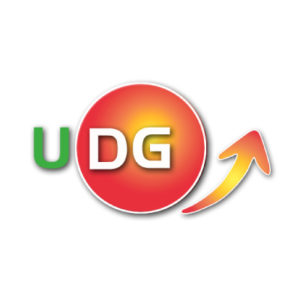
University of Donja Gorica
The University of Donja Gorica (UDG) is a private, non-for-profit university located in a suburb of Podgorica, the capital of Montenegro. It was established in February 2010 by the incorporation of five existing faculties: international economics, finance and business; law; information systems and technologies; humanistic studies; and arts. The UDG founders had created these faculties sequentially as components of the future UDG. It offers courses at both undergraduate and postgraduate level of education, including Bachelor, Specialist, Master’s and PhD level of studies. Currently, it has around 2500 students, and 250 professors and teaching staff. Today, UDG includes 12 faculties and 18 departments. Six of these faculties are registered scientific research institutions. Also, UDG has two cooperative institutions: Institute for Entrepreneurship and Economic Development and Institute for Strategic Studies and Prognosis. Management of UDG consists of Assembly of founders, Development Council, UDG Senate, Rector and General Manager. The vision is implemented through an innovative education philosophy that stresses intellectual and personal development through active learning. All programs at UDG are designed according to the principles of the Bologna Declaration, which ensures students’ mobility, international recognition of diplomas, as well as the possibility of partial independent profiling of the programs through a wide range of elective courses, in accordance with personal affinities and interests.
Humanistic Studies, as a political science department, has two programmes, International Relations and Security Studies. The staff comprises more than 15 full time employed teachers and researchers. It has several MA and PhD programmes, firmed on the two mentioned areas of interest. The institution is research oriented and aims at creating capable students with the highest level of knowledge and skills. Its staff is recognised by achievements in their areas of interest, from teaching assistant to full professors.

The University of Montenegro
The University of Montenegro is a public institution, established by the state, operating as a unique legal person represented by the Rector. It is an integrated university organized on the model of most European universities. Organizational units are competent for provision of study programmes, scientific-research and artistic work, use of allocated funds and membership in professional associations.
Since its foundation, it has continuously been conducting reforms in the area of education and research, and since 2003 in line with the trends in EHEA. After adoption of the Bologna Declaration, UoM organized systematic preparation of documents aligned with it. Already in 2003 the experimental teaching programme started and today all studies are organized in line with the Bologna principles.
The seat of the UoM is in Podgorica, the capital city, while university units are located in eight Montenegrin towns. UoM has unique academic, business and development objectives. It comprises 20 faculties and two research institutes. The University support services and centres (advisory services, accounting department, international cooperation, career orientation) are located in the Rectorate.
UoM is the leading higher education and research institution in Montenegro. Academic community of UoM is aware of the importance of its functioning for further development of the state and wider region. It has been so far, and will be in the future, the leader in processes of social and cultural changes, along with the economic development.
In view of attaining its mission, UoM is oriented towards the priority social needs of the time in which it accomplishes its mission; open for all the students and staff exclusively based on their knowledge and abilities; dedicated to preservation of multicultural and multi-ethnic society in Montenegro; entrepreneurial in stimulating social and economic application of supreme achievements within the scope of its activities.
In 2015/16 there were a total of 1.192 employees at UoM, 845 of which were engaged in teaching. In the same year there were 20.236 students registered at all three cycles of studies.
Internationalization is high on the agenda of UoM priorities, thus it has participated in a number of international projects – over 50 projects funded under the Tempus programme, over 15 Erasmus Mundus Action 2 projects for student mobility, a number of projects under FP7 funding scheme or IPA supported projects, Erasmus + capacity building and International credit mobility projects and other.

Universum College
Universum College is a higher education institution which received unconditional institutional accreditation by the Kosovo[1] Accreditation Agency (KAA). Study programs, institutional management and quality assurance are highly evaluated by international experts (see reports of accreditation)
Universum College was established in March 2005 which is located in Pristina, Kosovo’s capital city and in Ferizaj. Since 2012 College Universum has started functioning with its branch in Gjakova. The mission of Universum College is to provide Kosovo, regional and international students with high quality studies, educational opportunities and services through excellence in teaching, lifelong learning, applied research and building partnerships. Furthermore, preparing students to have critical thinking, to be successful citizens, accountable, and to support economic development in Kosovo and the region.
The tools to achieve the mission are:
- To provide high quality education for Kosovo, regional and international students;
- To preserve and develop standards of excellence essential for the future success of our students and to provide the necessary tools to achieve these goals;
- To encourage applied research;
- To continue to develop innovative and flexible educational approaches that serve the needs of students;
- To reveal scientific values inspiring the behavior of students;
- To encourage personal and social development of students through extracurricular activities;
- To develop the College as a center of lifelong learning;
- To provide support programs to help students achieve their goals;
- To extend partnerships and international programs
- To enable students the recognition and appreciation of world cultures;
- To lead to the creation of partnerships that promote economic development in the region;
- To produce an incentive structure that encourage research and innovation for issue or interest to local and regional economies.
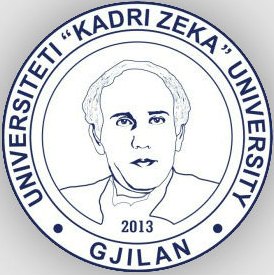
University Kadri Zeka
University “Kadri Zeka” in Gjilan (UKZ) was established by the decision of the Government of Republic Kosova[1] on 06.03.2013, decision number 118/03, which was adopted by the Assembly of Kosova on 05.30.2013, with the idea of promotion and development of higher university education, research, artistic creativity for staff qualification up to doctoral degree. The establishment UKZ enabled the inclusion of the greatest number of students in the region of Gjilan, Preshevo Valley and other areas in higher university education.
By Founding Council held on 31.10.2013 it was proposed that the Public University of Gjilan be named: University “Kadri Zeka” in Gjilan. Ministry of Education, Science and Technology (MEST) of Kosova has approved the proposal and decided on 11.13.2013.
UKZ continues the tradition of three Faculties that have so far functioned as branches of the Faculties of the University of Pristina in Gjilan.
As a part of the University, offered programs have existed up to now as branches of the Faculty of Education, Faculty of Economics and the Faculty of Law of the University of Prishtina.
Existing programs have already passed the accreditation process. To these programs we added two new programs, one for each of the new faculties: one program in Computer Science and one program Political Science.
All study programs at the University “Kadri Zeka” were approved in the meeting of the University Senate II held on 12.26.2013, in Gjilan.
Therefore, the University has the following structure of programs.
Faculty of Education
– Preschool Program (Ba)
– Primary School Program (Ba)
Faculty of Law
– Program: General Law (Ba)
Faculty of Economics
– Program: Banks, Finance, and Accounting (Ba)
– Program: Management and Informatics (Ba)
– Program: Marketing (Ba)
Faculty of Computer Sciences
– Program: Computer Sciences (Ba)
– And for Master studies:
– E-Governance (MA)
– Local Governance and democratic Society (MA)
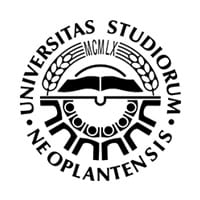
University of Novi Sad
The University of Novi Sad (UNS) was founded in1960. It is the only state university in the Autonomous Province of Vojvodina, comprising 14 faculties and 2 research and developmental institutes. With 5000 staff and more than 50.000 students, University of Novi Sad is the second biggest University in Serbia and a reputable educational and scientific institution providing teaching and research. Being the regional stronghold in education and research, UNS naturally attracts the best students and the best researchers. University is multidisciplinary, committed to excellence, and produces well-qualified and competent graduates, who easily and quickly find their place in the labor market, both nationally, regionally and internationally. UNS showed great success in application of scientific results in practice, which was reflected through several FP7 and H2020 grants, which considerably built institutional capacity to administrate and implement very demanding scientific projects. UNS is an internationally well-networked university, already involved in ERA and EHEA, whose researchers publish in leading journals and are part of many international consortia. UNS especially nurtures innovations in science, is experienced in spinning off new businesses, and is the owner of recognized national and international patents.
The activities of UNS are realized through fundamental, applied and developmental research and teaching in the field of natural, technical, social, humanistic and medical sciences as well as arts.
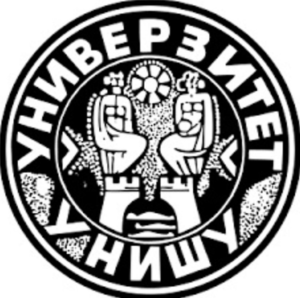 University of Nis
University of Nis
University of Niš was founded in 1965 as a state HE institution. At present, the University comprises 13 faculties: Faculty of Civil Engineering and Architecture, Faculty of Economics, Faculty of Electronic Engineering, Faculty of Arts, Faculty of Law, Faculty of Mechanical Engineering, Faculty of Medicine, Faculty of Occupational Safety, Faculty of Philosophy, Faculty of Physical Culture, Faculty of Science and Mathematics, Faculty of Technology and Teacher-Training Faculty. Most of these faculties have composite structure, i.e. various departments, divisions or majors, offering wide and diversified study and research opportunities at both undergraduate and graduate level, including opportunities to obtain a PhD degree. The University of Niš is a medium-sized, mature and well developed academic community. The teaching process at the University is covered by 1639 teaching staff members and 740 administrative and support staff. In the academic 2016/2017 year, the University of Niš numbers around 28500 students at all levels of studies.
Research work is performed at all faculties, in the areas of basic, applied and scientific research. Research work in the previous period has been carried out through participation of teachers and associates in realisation of national and international research projects, publishing papers in academic journals and academic seminars in the country and abroad. Most of faculties are, within their own organisational units, research labs and innovation centres, providing professional and technical support as well as other scientific research related services, which has established cooperation with the economy sector.
The University of Niš maintains rich bilateral and multilateral collaboration with many academic and research institutions and associations from the country and abroad. Close links with foreign partners are kept through the membership in various international and interuniversity associations, through international programs and projects, or on the basis of contracts on direct collaboration. One of the leading principles of the University of Niš is to become part of the European higher education area and to adjust its plans and study programs against this aim, in the context of the reform of higher education system within the EU projects and other programs.

